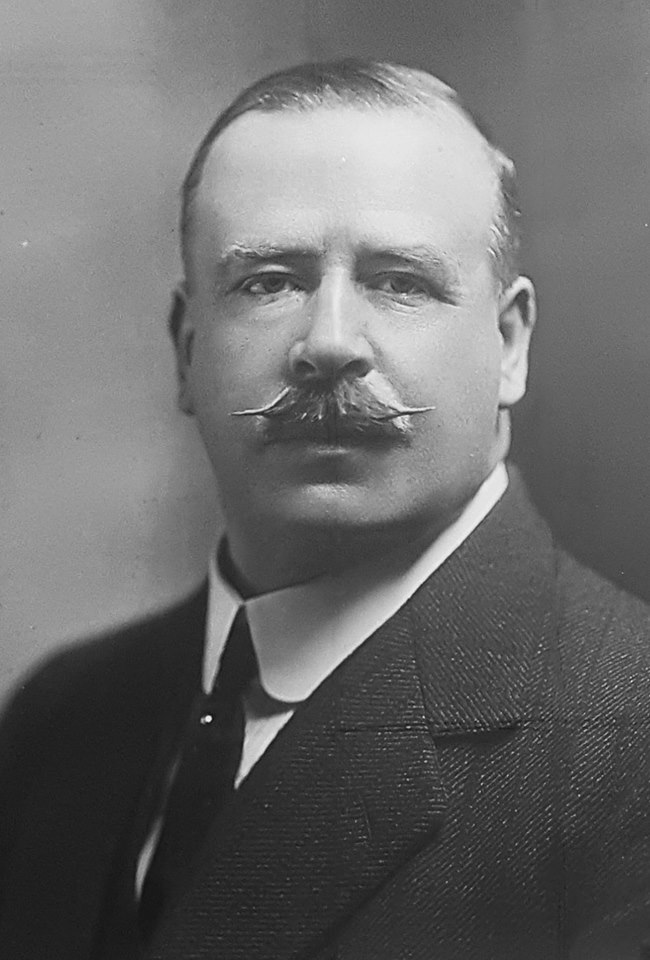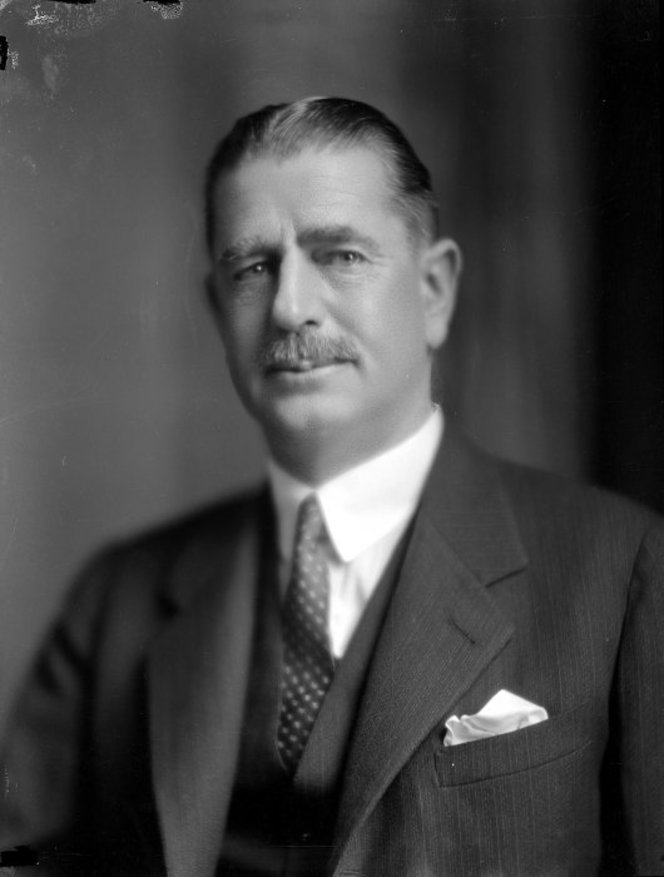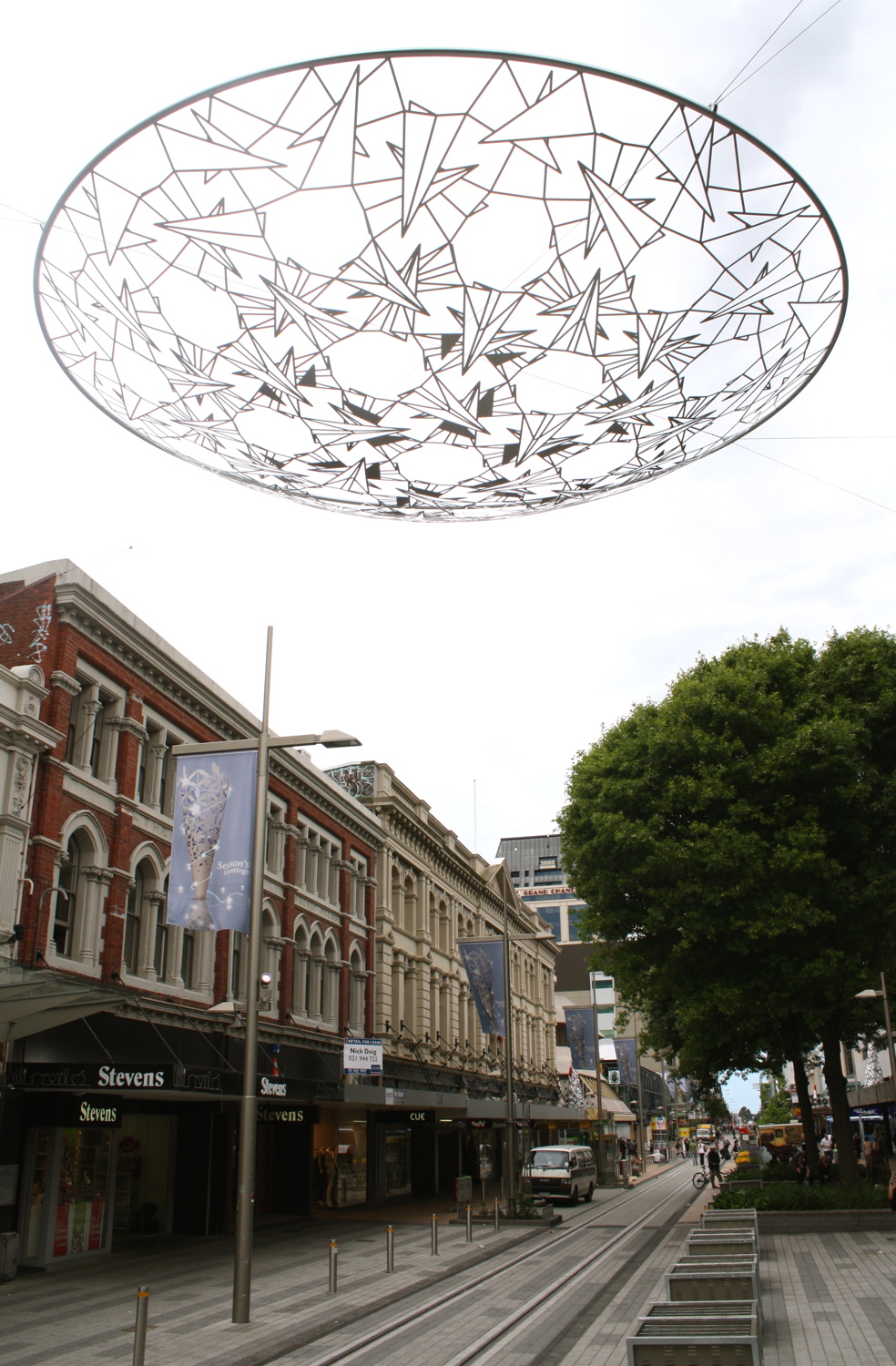|
Mid-Canterbury (New Zealand Electorate)
Mid-Canterbury was a New Zealand parliamentary electorate in rural Canterbury. It existed from 1928 to 1946 and was represented by six Members of Parliament, including Mary Grigg, the first woman National Party MP. Population centres In the 1927 electoral redistribution, the North Island gained a further electorate from the South Island due to fast population growth. Five electorates were abolished, two former electorates were re-established, and three electorates, including Mid-Canterbury, were created for the first time. These changes came into effect with the . History The electorate existed from 1928 to 1946. David Jones was the first representative, winning the by a wafer-thin majority of 55 votes (0.59%) against Jeremiah Connolly; he had previously held and . Jones was defeated by Connolly in the . Connolly died on 2 October 1935 and as this was only weeks prior to the , the seat remained vacant and no by-election was called. Horace Herring of the Labour Party won the ... [...More Info...] [...Related Items...] OR: [Wikipedia] [Google] [Baidu] |
New Zealand Electorates
An electorate or electoral district ( mi, rohe pōti) is a geographical constituency used for electing a member () to the New Zealand Parliament. The size of electorates is determined such that all electorates have approximately the same population. Before 1996, all MPs were directly chosen for office by the voters of an electorate. In New Zealand's electoral system, 72 of the usually 120 seats in Parliament are filled by electorate members, with the remainder being filled from party lists in order to achieve proportional representation among parties. The 72 electorates are made up from 65 general and seven Māori electorates. The number of electorates increases periodically in line with national population growth; the number was increased from 71 to 72 starting at the 2020 general election. Terminology The Electoral Act 1993 refers to electorates as "electoral districts". Electorates are informally referred to as "seats", but technically the term '' seat'' refers to an electe ... [...More Info...] [...Related Items...] OR: [Wikipedia] [Google] [Baidu] |
William Polson
Sir William John Polson (6 June 1875 – 8 October 1960) was a New Zealand politician, first as an Independent and then in the National Party. He joined the National Party on its formation in 1936, and "later acted effectively as Holland's deputy". Biography Early life and career Polson was born in Wanganui to Scottish immigrants Donald Gunn Polson and Janet Campbell Gillies, and was educated at Wanganui Collegiate School. After finishing school he worked on his father's farm until ill health caused him to cease work. During his recuperation he taught himself shorthand and later became a journalist. He was Wellington provincial president of New Zealand Farmers' Union from 1920 to 1921 and became dominion president from 1921 to 1936. Polson's position as president meant he became prominent in national politics. He clashed with the Reform government over meat marketing in 1919, monopolistic marketing trusts in the face of a produce price slump in 1921. He initiated the Meat E ... [...More Info...] [...Related Items...] OR: [Wikipedia] [Google] [Baidu] |
Historical Electorates Of New Zealand
History (derived ) is the systematic study and the documentation of the human activity. The time period of event before the invention of writing systems is considered prehistory. "History" is an umbrella term comprising past events as well as the memory, discovery, collection, organization, presentation, and interpretation of these events. Historians seek knowledge of the past using historical sources such as written documents, oral accounts, art and material artifacts, and ecological markers. History is not complete and still has debatable mysteries. History is also an academic discipline which uses narrative to describe, examine, question, and analyze past events, and investigate their patterns of cause and effect. Historians often debate which narrative best explains an event, as well as the significance of different causes and effects. Historians also debate the nature of history as an end in itself, as well as its usefulness to give perspective on the problems of the p ... [...More Info...] [...Related Items...] OR: [Wikipedia] [Google] [Baidu] |
Morgan Williams (politician)
Charles Morgan Williams (21 April 1878 – 4 August 1970) was a mayor and Member of Parliament for Kaiapoi in Canterbury, New Zealand. Early years: farming and business C. Morgan Williams was born in North Wales in 1878, and worked as a letter sorter in London. There he was active in the Battersea Branch of the British Social Democratic Federation and later secretary of the Clapham Branch. He came to New Zealand in 1902, and worked as a farm labourer in the Kaiapoi district until 1906, when he bought and leased land in the Tram Road area and grew potatoes. On the peat land he developed an extensive drainage system to allow dairy farming and founded the Maesgwyn herd of pedigree Ayrshire cattle. Williams purchased the property known as "Waverley" from Richard Evans in 1925. He also established the grain and produce business of C. Morgan Williams and Son in Charles Street, Kaiapoi. Afforestation Morgan Williams was closely associated with afforestation at Kaiapoi for over fifty ... [...More Info...] [...Related Items...] OR: [Wikipedia] [Google] [Baidu] |
1928 New Zealand General Election
The 1928 New Zealand general election was held on 13 and 14 November in the Māori and European electorates, respectively, to elect 80 MPs to the 23rd session of the New Zealand Parliament. 1928 was the year postal voting was introduced for certain specified groups (e.g. invalids) who could not get to a polling booth on election day. The election The 1928 election was held on Tuesday, 13 November in the Māori electorates, and on Wednesday, 14 November in the general electorates to elect a total of 80 MPs to the 23rd session of Parliament. A total of 844,633 electors were registered on the European roll, of which 743,691 (88.05%) turned out to vote. All 80 electorates were contested. 47 and 29 electorates were in the North Island and South Island, respectively, plus the 4 Māori electorates. In 1927, a faction of the decaying Liberal Party formed a new organisation, which was eventually named the United Party. In 1928, to the considerable surprise of most observers and many m ... [...More Info...] [...Related Items...] OR: [Wikipedia] [Google] [Baidu] |
Hiram Hunter
Hiram Hunter (10 February 1874 – 9 May 1966) was a New Zealand politician and trade unionist. Early life Born in Christchurch in 1874, Hunter was a farmer, storekeeper, carter, and trade unionist. Political career Hunter stood for the Christchurch East electorate in the New Zealand House of Representatives in for the Labour Party (original), for the Social Democratic Party and for the New Zealand Labour Party. His best result was losing by 136 votes in 1911 in a close three-way contest, and failing to qualify for the subsequent run-off election by just four votes. He was President of the LRC (1911–1913) and of the Social Democratic Party (1913–1915). In , he contested the Mid-Canterbury electorate as an Independent Labour candidate against Jeremiah Connolly, but was unsuccessful. During the 1930s, Hunter became increasingly disillusioned with the NZ Labour Party and argued that: ''"We have learned much of socialisation through its application in Russia. The result ... [...More Info...] [...Related Items...] OR: [Wikipedia] [Google] [Baidu] |
1931 New Zealand General Election
The 1931 New Zealand general election was a nationwide vote to determine the shape of the New Zealand Parliament's 24th New Zealand Parliament, 24th term. It resulted in the United–Reform Coalition, newly formed coalition between the United Party (New Zealand), United Party and the Reform Party (New Zealand), Reform Party remaining in office as the United–Reform coalition Government of New Zealand, United–Reform Coalition Government, although the opposition New Zealand Labour Party, Labour Party made some minor gains despite tallying more votes than any other single party. Background In the 1928 New Zealand general election, 1928 election, the Reform Party (New Zealand), Reform Party won 28 seats to the United Party (New Zealand), United Party's 27 seats. Shortly after the election the Reform Party lost a vote of no-confidence and the United Party managed to form a government, the United Government of New Zealand, United Government, with the support of the New Zealand Labour ... [...More Info...] [...Related Items...] OR: [Wikipedia] [Google] [Baidu] |
1935 New Zealand General Election
The 1935 New Zealand general election was a nationwide vote to determine the shape of the New Zealand Parliament's 25th term. It resulted in the Labour Party's first electoral victory, with Michael Joseph Savage becoming the first Labour Prime Minister after defeating the governing coalition, consisting of the United Party and the Reform Party, in a landslide. The governing coalition lost 31 seats, which was attributed by many to their handling of the Great Depression: the year after the election, the United and Reform parties merged to form the modern National Party. The election was originally scheduled to be held in 1934, in keeping with the country's three-year election cycle, but the governing coalition postponed the election by one year hoping that the economic conditions would improve by 1935. Background Since 1931, New Zealand had been governed by a coalition of the United Party and the Reform Party, the United–Reform Coalition. United and Reform had tradition ... [...More Info...] [...Related Items...] OR: [Wikipedia] [Google] [Baidu] |
1938 New Zealand General Election
The 1938 New Zealand general election was a nationwide vote to determine the shape of the New Zealand Parliament's 26th term. It resulted in the governing Labour Party being re-elected, although the newly founded National Party gained a certain amount of ground. This was the first election in which the Māori were given a secret ballot which had been available to white voters since 1870. Background The Labour Party had won a resounding victory in the 1935 elections, winning fifty-three seats. Shortly after the elections, the two Ratana-aligned MPs also merged into the Labour Party, giving Labour a total of fifty-five seats. The government, a coalition of the United Party and the Reform Party, had won only nineteen seats. Shortly after their defeat, United and Reform agreed to merge into the National Party, which positioned itself as the only alternative to the "socialist" Labour Party. However, Labour remained popular with the public, and the Prime Minister, Michael Jose ... [...More Info...] [...Related Items...] OR: [Wikipedia] [Google] [Baidu] |
David Barnes (politician)
David Barnes (1894–9 June 1970) was a New Zealand politician of the Labour Party. Biography Early life and career Barnes was born and educated in England before migrating to New Zealand in 1908 with his parents. After arriving her became a farmer in the North Canterbury area until 1914 when he signed up for the Canterbury Mounted Rifles Regiment in World War I. After being wounded at Gallipoli he returned to New Zealand where he became the first returned serviceman to join the pilot school at Sockburn by the Canterbury Aviation Company before returning to England to completed his pilot training. Subsequently, he served with English coastal defence forces until the end of the war. He returned to New Zealand to resume farming in North Canterbury, and later at Fairlie. Member of Parliament In Fairlie he started a branch of the Labour Party. He was also a founding member and president of the Fairlie Crown Tenant's Association branch. He represented the electorate from to ... [...More Info...] [...Related Items...] OR: [Wikipedia] [Google] [Baidu] |
The Press
''The Press'' is a daily newspaper published in Christchurch, New Zealand owned by media business Stuff Ltd. First published in 1861, the newspaper is the largest circulating daily in the South Island and publishes Monday to Saturday. One community newspaper—''Northern Outlook''- is also published by ''The Press'' and is free. The newspaper has won the title of New Zealand Newspaper of the Year (in its circulation category) three times: in 2006, 2007 and 2012. It has also won the overall Newspaper of the Year title twice: in 2006 and 2007. History James FitzGerald came to Lyttelton on the ''Charlotte Jane'' in December 1850, and was from January 1851 the first editor of the ''Lyttelton Times'', Canterbury's first newspaper. From 1853, he focussed on politics and withdrew from the ''Lyttelton Times''. After several years in England, he returned to Canterbury concerned about the proposed capital works programme of the provincial government, with his chief concern the pro ... [...More Info...] [...Related Items...] OR: [Wikipedia] [Google] [Baidu] |
1943 New Zealand General Election
The 1943 New Zealand general election was a nationwide vote to determine the shape of the New Zealand Parliament's 27th term. With the onset of World War II, elections were initially postponed, but it was eventually decided to hold a general election in September 1943, around two years after it would normally have occurred. The election saw the governing Labour Party re-elected by a comfortable margin, although the party nevertheless lost considerable ground to the expanding National Party. Background The Labour Party had formed its first government after its resounding victory in the 1935 elections and had been re-elected by a substantial margin in the 1938 elections. Michael Joseph Savage, the first Labour Prime Minister, died in 1940; he was replaced by Peter Fraser, who was widely viewed as competent even if he was less popular than Savage. In the same year as Fraser took power, however, the opposition National Party had replaced the ineffectual Adam Hamilton with Sidne ... [...More Info...] [...Related Items...] OR: [Wikipedia] [Google] [Baidu] |
.jpg)


.jpg)

